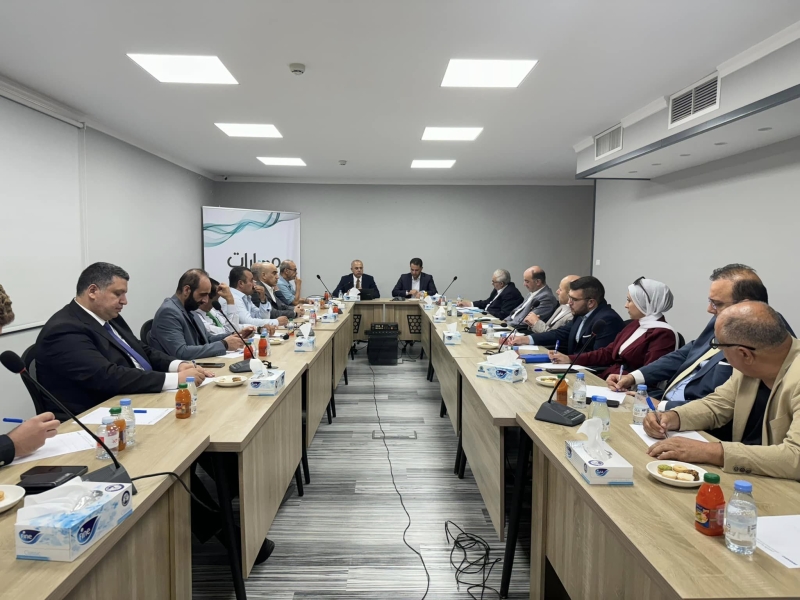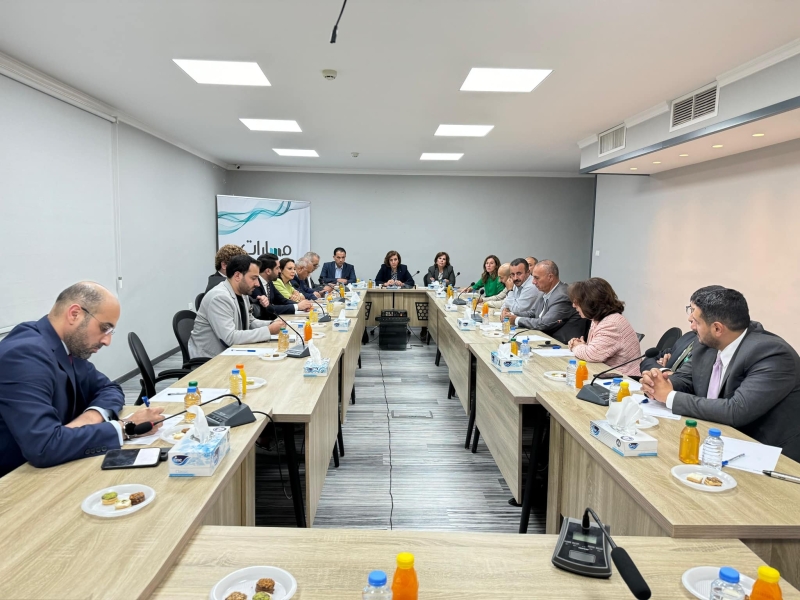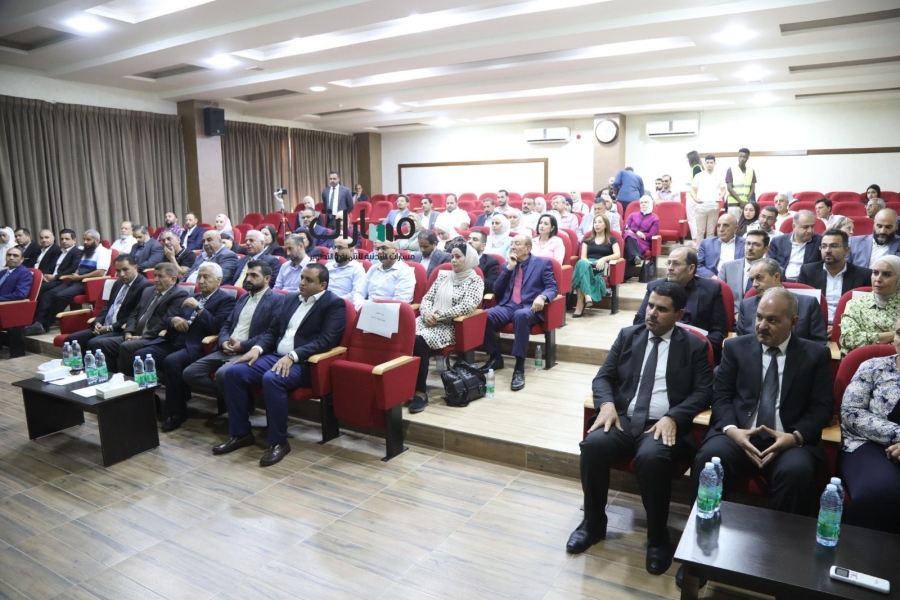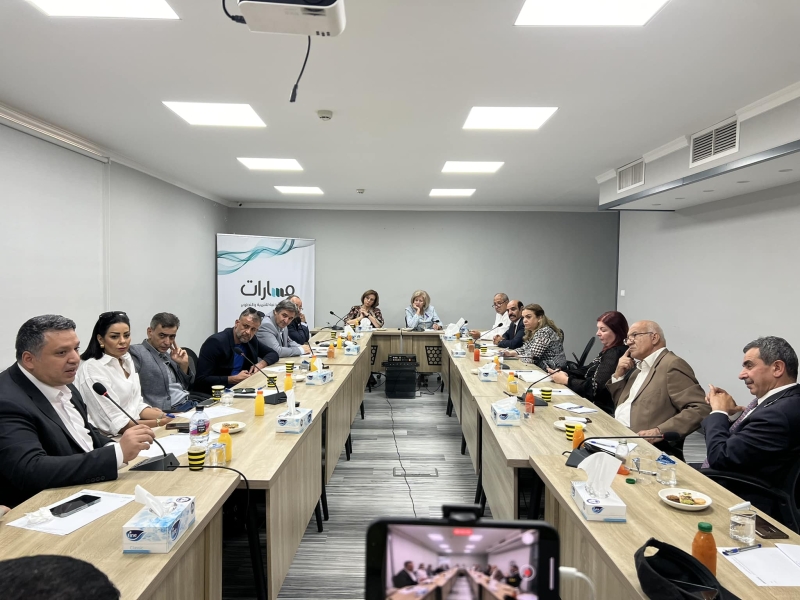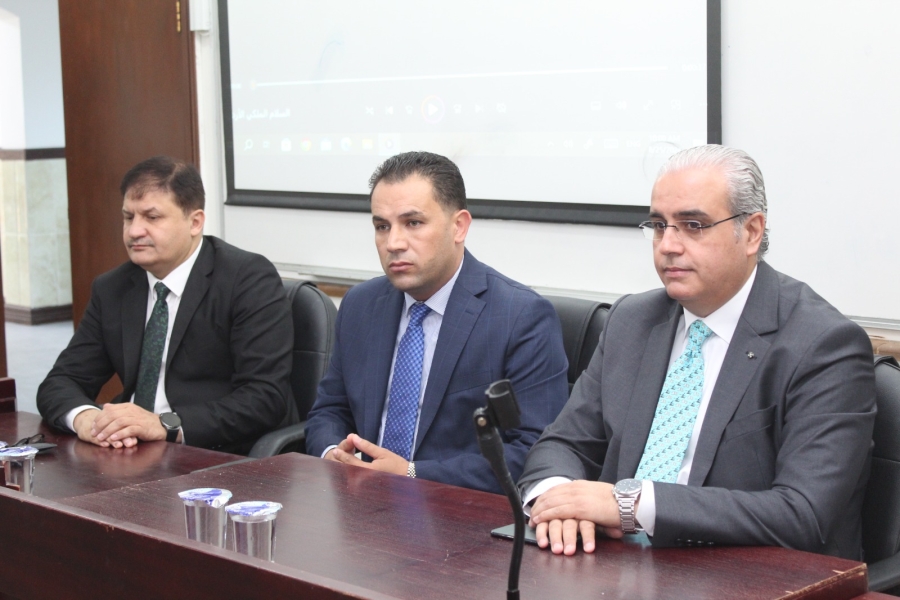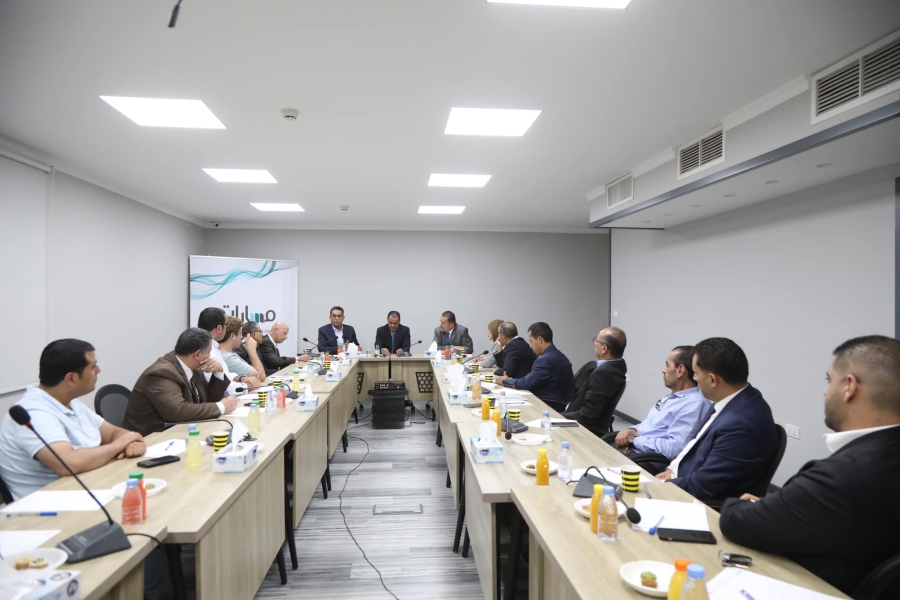Masarat Jordan for Development and Progress held a discussion session with journalists and specialists on the Economic Modernization Vision in Jordan, which forms a cornerstone of the reform project initiated by the state and endorsed by His Majesty King Abdullah II bin Al Hussein.
The session addressed the impact of the influx of refugees on population growth and essential services, water security amid regional instability and increasing threats, and the significant decline in public revenues, which fell short of budget estimates by over $600 million within just seven months.
The session, moderated by Masarat’s Executive Director, Talal Ghneimat, featured former MP Dr. Khair Abu Sailek and several specialists.
Economic Overview and Challenges
Dr. Abu Sailek emphasized the need to fully understand Jordan's economic trajectory over the past two decades. From 2000 to 2008, the country experienced robust economic growth, with an average growth rate of 6.5%, supported by regional stability and effective domestic policies. However, the global financial crisis of 2008-2009 marked a turning point, leading to a prolonged period of economic slowdown.
From 2009 to 2023, the average economic growth rate plummeted to 2.3%, exacerbated by external shocks such as the Syrian refugee crisis, which brought over 1.3 million refugees to Jordan, straining public resources and infrastructure. The economic stagnation was reflected not only in GDP growth rates but also in escalating public debt.
Public Debt Trajectory and Fiscal Pressures
Dr. Abu Sailek outlined the public debt's trajectory in three phases:
- Pre-Arab Spring: Gradual and manageable debt increases.
- Arab Spring Period: Sharp escalation due to government responses to regional instability and domestic pressures.
- Post-2018: Relative stabilization until the COVID-19 pandemic caused another spike in public debt.
The rising public debt, coupled with limited economic growth, poses a significant challenge. Public debt servicing costs rose by 216% in the post-pandemic period compared to 2015, further pressuring the public finances.
Regional and Geopolitical Context
Abu Sailek noted that Jordan's geopolitical challenges amplify the urgency of economic modernization to ensure long-term stability and growth. Recent aggression in Gaza and the West Bank not only deepened humanitarian crises but also dealt a severe blow to Jordan's economy, particularly in tourism and transportation sectors.
The disruption of Red Sea maritime routes—a vital artery for trade and tourism—resulted in economic setbacks, with hotel revenues declining by 26.2% in the first half of 2024. Transportation costs also surged, with container shipping costs from East Asia nearly doubling.
Economic Modernization Vision and Future Outlook
Dr. Abu Sailek highlighted the government’s Economic Modernization Vision, which includes a plan to create over one million jobs requiring investments of 41 billion Jordanian dinars—30 billion from partnerships and private sector investments, and 11 billion from public investments. However, he stressed that achieving this vision requires a well-structured executive program, noting that the current program for 2023-2025 has yet to deliver on its ambitious goals.
Masarat’s Perspective on Economic Modernization
Talal Ghneimat, Masarat’s Executive Director, emphasized that fair, transparent, and equitable elections are fundamental to building a resilient state. He pointed out that the royal directive to restructure the public sector is a pivotal moment in Jordan’s modernization journey, requiring a comprehensive reassessment of administrative frameworks.
Ghniemat also underscored the critical role of economic modernization as part of an integrated reform project led by His Majesty King Abdullah II, aimed at synchronizing political, administrative, and economic reforms for a cohesive and future-focused state. However, he acknowledged that the gap between the ambitious goals and on-ground realities remains significant.
Foreign Investment and Legislative Stability
Participants in the session stressed the importance of comprehensive reforms to attract foreign investment and leverage Jordan's economic potential. They pointed out the inadequacy of marketing investment opportunities in high-potential sectors such as tourism and agriculture.
Conclusion and Recommendations
The participants concluded that while the government's economic reform program has laid a foundation, it remains insufficient, achieving only 19% of its objectives by mid-2024. They emphasized the need for legislative stability and a more strategic approach to utilizing available resources, warning that cuts in capital expenditures could exacerbate long-term challenges in supporting growth and development.
